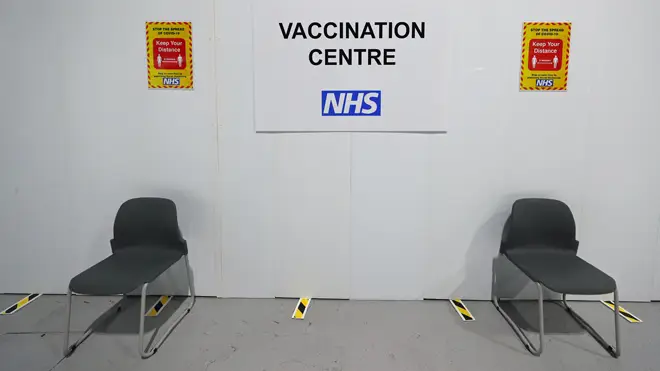
Oli Dugmore 4am - 7am
1 February 2021, 11:46

England faces a crisis in children’s mental health as a result of the pandemic, according to alarming new figures uncovered by an LBC investigation.
The data, obtained through Freedom of Information requests to England’s mental health trusts, reveals a yawning and potentially widening gap between the need for mental health services, and the NHS’s ability to provide help.
Our investigation found that the number of children and young people starting treatment for mental health fell by 12% between April and November last year compared to 2019, and the number of referrals for treatment fell even further, by 17%.
Meaning over 35,000 fewer children were either treated or referred for treatment at a time when several other indicators suggest children are struggling with mental health like never before.
A poll published at the weekend by the Mental Health Foundation and Swansea University found that more than a quarter of teenagers were suffering symptoms of anxiety and depression.
And research from October by the Centre for Mental Health predicted that 1.5 million children would need new or additional mental health support as a direct result of the pandemic.
Deputy Chief Executive Andy Bell said: “It’s a great amount of extra need. For many of those people they may have experienced poor mental health anyway, but need extra support.
"Either way these are big numbers – we think across the UK around 10 million people of all ages will need help – and we need to make sure we have support readily available for people so that they don’t have to wait for a long time to access help when they need it urgently.”
And yet, rather than the numbers of children being treated rising to reflect that need, they are falling as the NHS is under extreme pressure, and whilst school closures lead to fewer children being referred for help.
From March to June last year, when schools were shut during the first lockdown, our findings reveal there was a dramatic drop in referrals of 33%. And the fear is that something similar may be happening right now, as schools have closed once again.
Nick Harrop, Head of External Affairs at the charity Young Minds, said: “We’ve got to make sure during this lockdown that it doesn’t happen again, that we don’t see a drop in referrals at a time when we know lots of young people are really struggling.
We need to make sure that schools are still identifying young people who need support and referring them when needed. And we need to spread the message that help is out there.”
Another factor in the alarming drop in treatment may be because young people are reluctant to contact their GP when they know the health service is in crisis.
But the NHS is keen to stress that mental health services have remained open throughout the pandemic, in spite of the pressures from COVID-19.
A spokesman for the Department for Health said: “This has been an exceptionally difficult year and we are absolutely committed to supporting the mental wellbeing of children and young people who have been particularly impacted by this pandemic.
“Early intervention and treatment are vital, and we are providing an extra £2.3 billion to help 345,000 more children and young people access NHS-funded services, or school and college-based support.
“Alongside this, we are training a new dedicated mental health workforce to support children in schools and colleges across the country, as well as giving staff the resources to teach young people what good mental and physical health looks like.”
The fear is that the rising tide of mental health problems, particularly amongst children, is going largely untreated as the country remains on lockdown, and that the true scale of the crisis will only become apparent in the months ahead.